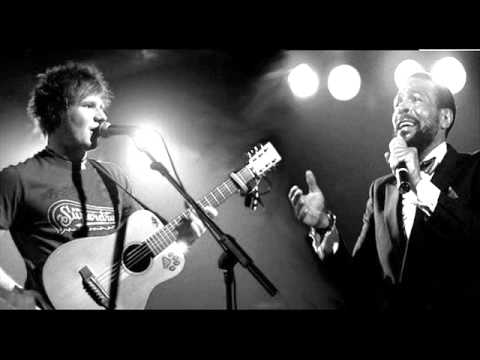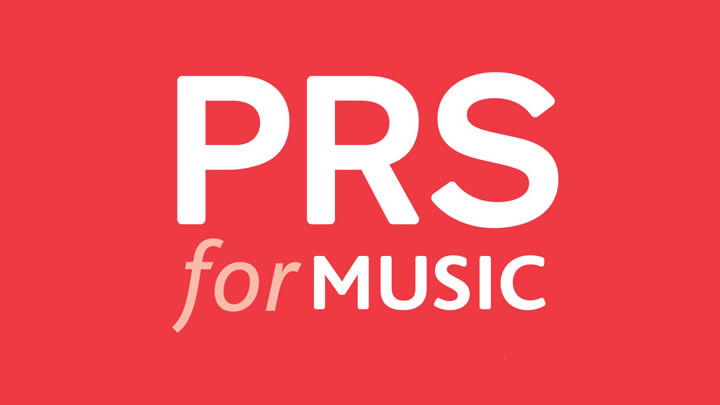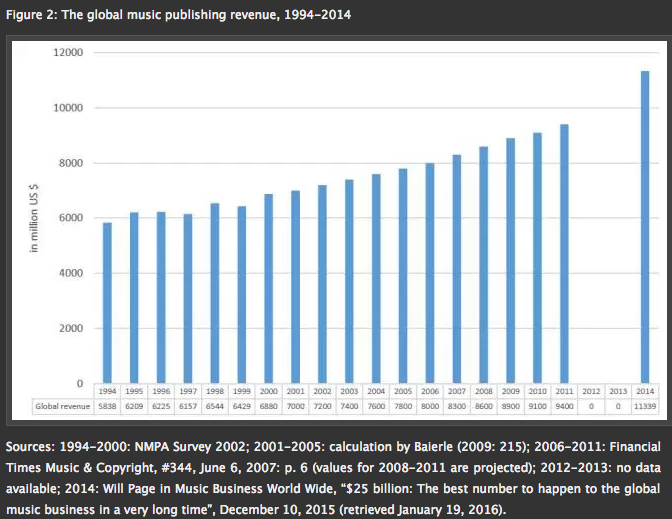What is the role of a music publisher?
A music publisher works to exploit the compositional side of a musicians career. They do this by chasing up royalties and advertising their artists compositions for other musicians to perform. Whilst also protecting their artists intellectual property. They work is a similar fashion to record labels, only being concerned with the composition rather than the recording. The similarities can lead to joint contracts where an artist will let one company cover both sides.
Why sign to a publisher?
Publishers take a lot of the administrative work out of your hands as they will chase up royalties for you and promote your compositions on your behalf, however it’s also common for them to take a 50% cut. So it’s down to the artist to work out if this is worth it for their own personal situation. Having a publisher allows composers to focus on writing music instead of getting tangled up in bureaucracy.
Intellectual property/Copyright
Intellectual property is a blanket term referring to a protection that covers your creations and products. This is extremely useful for composers as it is a deterrent to others wanting to copy their work for financial gain. Copyright is a form of intellectual property that protects a product like a recording. In order to have intellectual property your idea must be physically recorded, in terms of a composition you could either notate or more commonly these days you could record a demo track at home. A great way to ensure you are protected in a legal setting is to date your track and burn it to a cd or memory stick and post it to yourself.
Intellectual composition rights last for 70 years after the creator dies. This was recently extended from 50 years because the Beatles music is still making money and if it fell into the public domain anyone would be free to exploit the compositions. Recording rights last for 70 years after death.
As the copyright holder you alone have the rights to copy and make money from your work, and you can seek legal action if this is infringed upon.

There are many famous cases of artists suing each other over infringements. One artist who has been dealing with many accusations of copy the work of others is Ed Sheeran. For example the family of the cowriter of Let’s Get It On- Marvin Gaye have been perusing the case that Sheeran’s Thinking Out Loud copy’s the famous track. However this will be a hard case as only a melody can be protected in this manner, so whilst there are similarities between the rhythms and the chords are the same, the difference between the melodies will be the deciding factor in the case.
Collection societies
PRS
The performing rights society collect money from businesses playing music, like shops or restaurants. Businesses play music with the hope that it will increase sales, meaning they are profiting from an artists composition for financial gain, therefore they pay the PRS who in turn pay composers. Additionally also collect royalties from radio stations, however many radio stations don’t record which songs they use, so the PRS has to use guess work and assumptions to pay composers which isn’t ideal however BBC Radio 1 accurately documents what is played on the radio, it would be a much fairer system if all radio stations did this. The PRS also collects money from venues and they get 3% of door take from venues, which is then paid to the composers of the music played at gigs. Much like with radio, venues are supposed to submit set lists from all the artists at every gig however in reality they don’t do this. Therefore it’s down to the bands to submit their own set lists which will result in them being paid for any original songs, this also ensures that the original composers of cover songs are paid as well.
 MCPS
MCPS
MCPS control the transfer of use or format of a music product. They collect money from things like CDs, DVD audio and etc. The Mechanical Copyright Protection Society is a part of the Performing Rights Society responsible for CD sales and digital downloads of songs otherwise known as mechanical sales. The record label that owns the recording pays the MCPS the royalties, which they then release, to the publishing company/songwriter. This is how songwriters for people like Rihanna make their money from her recordings. It costs £50 to join the MCPS. An upfront payment of £500 is needed for the MCPS to collect royalties for a ringtone. Ap1 and Ap2 licences cover CD, vinyl, DVD audio, SA CD, and other formats covered by the MCPS. Pro dub gives you the permission to copy your legally purchased music and change the format. The minimum payment from the MCPS is £30 in the UK and £60 worldwide.
PPL
PPL covers the rights of the recording when played in a public place. They work in a similar way to the PRS except they licence the recording and pay performers and record labels.
Publishing through time
Oral
Songs were passed between people by singing and telling stories, this meant that songs or stories couldn’t travel very far without loosing accuracy. And composers/performers weren’t concerned about others using their work.
Scribal
Music could be written down so it could be sent further away by couriers, this meant that compositions could be copied and forged although this took a long time as everything would have to be hand written and most people were illiterate and even fewer could read music. However this was marked the beginning of music being a physical product with a value rather than just a performance, as composers would be commissioned to compose pieces of music.
Printing
Printing allowed people to share compositions easily by printing sheet music and giving it to conductors, this meant that compositions could travel between countries. The earliest example of printed music comes from 1465. Orchestras commonly still read from printed notation however some are adopting tablets as silent page turning is advantageous. You will often find printed sheet music in music shops, with many modern composers/publishing companies still choosing to exploit compositions through this format.
Electric
This brought about radio and TV broadcasts therefore songs could be recorded and played across the nation this meant anyone could listen to the biggest artists of the time from the comfort of their living room without needing to see a live performance. This also brought about recording with formats like tape and vinyl being extremely popular amongst music consumers, this was the beginning of the recorded music industry, and also the beginning of piracy, as people tried to copy recordings and sell them without the copyright holders permission. When vinyl was the primary format this was a long process; so piracy wasn’t a big issue. However this was soon to change.
Digital
The introduction of digital media has enabled anyone to access anything instantly, This has completely changed the music industry and means that people can copy and share songs online quickly and easily, creating huge problems for those seeking to protect copyright. However it has also opened many doors for composers as they can now upload a collection of their work to be viewed by customers seeking music for games, videos or other media formats. It also enables music publishers to consolidate catalogues so record labels can quickly find music for their artists to perform. Digital audio work stations have facilitated the growth in affordable home recording, allowing composers to create demos of their work at home without the need for recording studios. The PRS has had to adapt with the music industry as streaming is on the rise and sales are declining they have had to work out deals with Soundcloud and Spotify.
Future
The future of the publishing sector is looking healthy as organisations like the PRS are dedicated to protect the rights of their members. And as long as they continue to adapt to the industry composers will still be paid. In terms of industry trends I envisage that there will be more performers/bands relying on professional song writers and ghost writers to compose music for them. This manufactured music has both good and bad points, as on the one hand increased competition from composers will drive creativity as they strive to find their own niche. However it also means that performers will become separated from the music as they wont have written it, and as someone who enjoys the narrative and story within lyrics this is a shame.
And as you can see from the graph below the publishing sector is growing at a steady rate each year mating it relatively secure in the turbulence of the music industry.



A good structure. Ensure you are being clear on what the role of publishers are in your headings where appropriate. Importance of sync. Day to day roles of publishers
LikeLike
some pictures and graphs would help it be more blog like
LikeLike
I’m an aspiring musician why should i join a collection society, is it worth the 50% of my earnings?
LikeLike
You could talk about lincenses and how much control publishers have regarding the use of songs/musical composition.
LikeLike